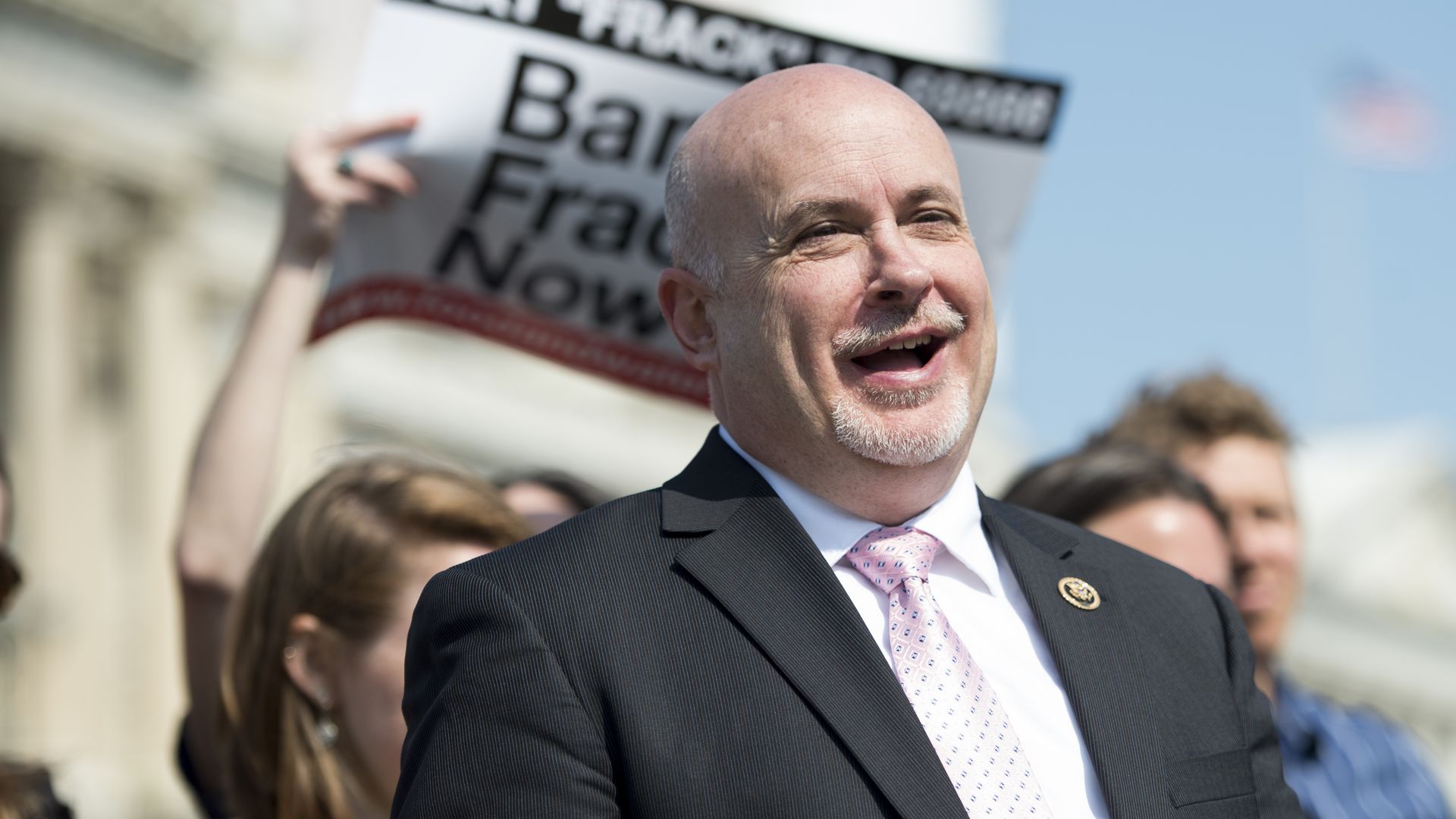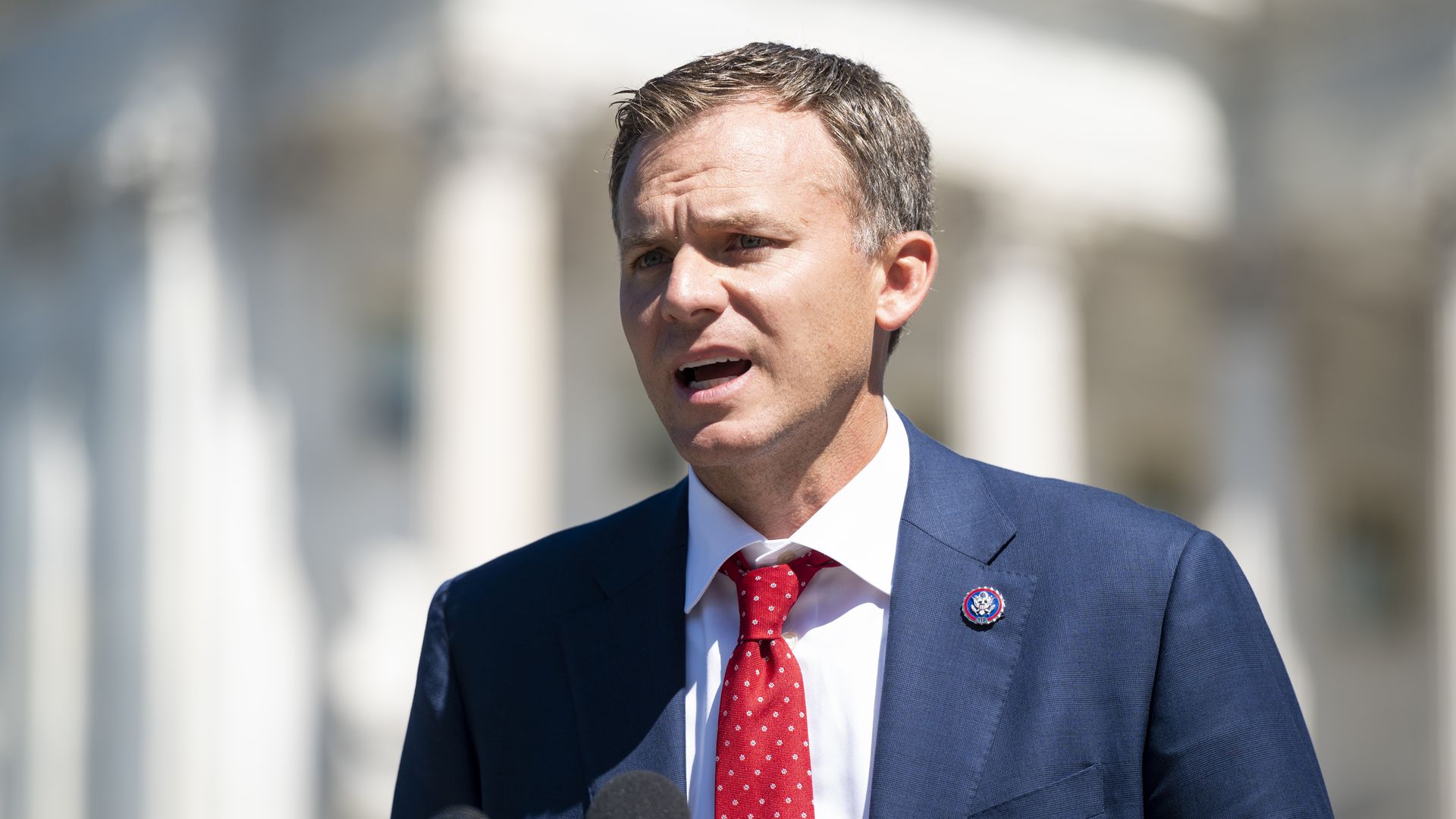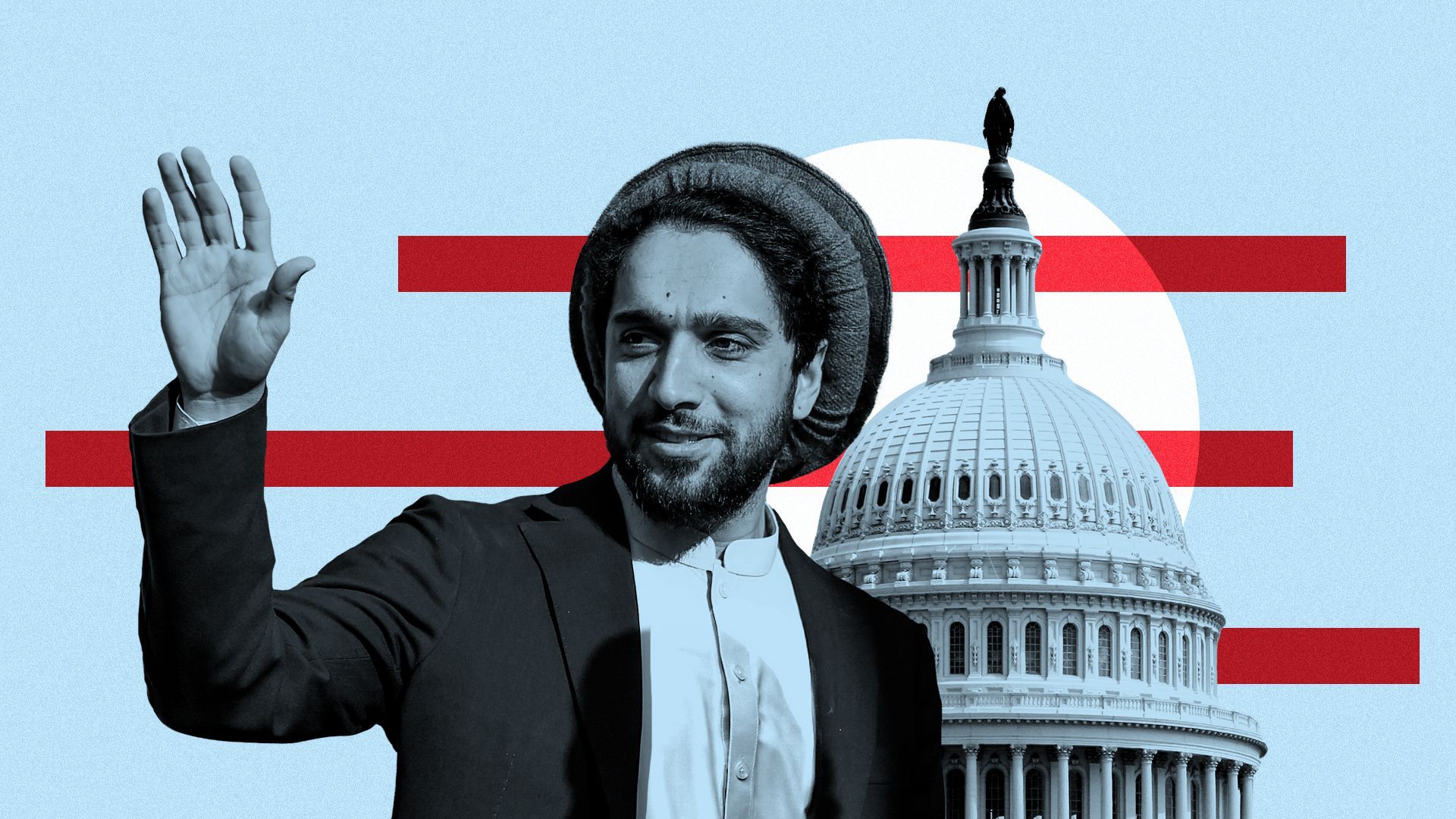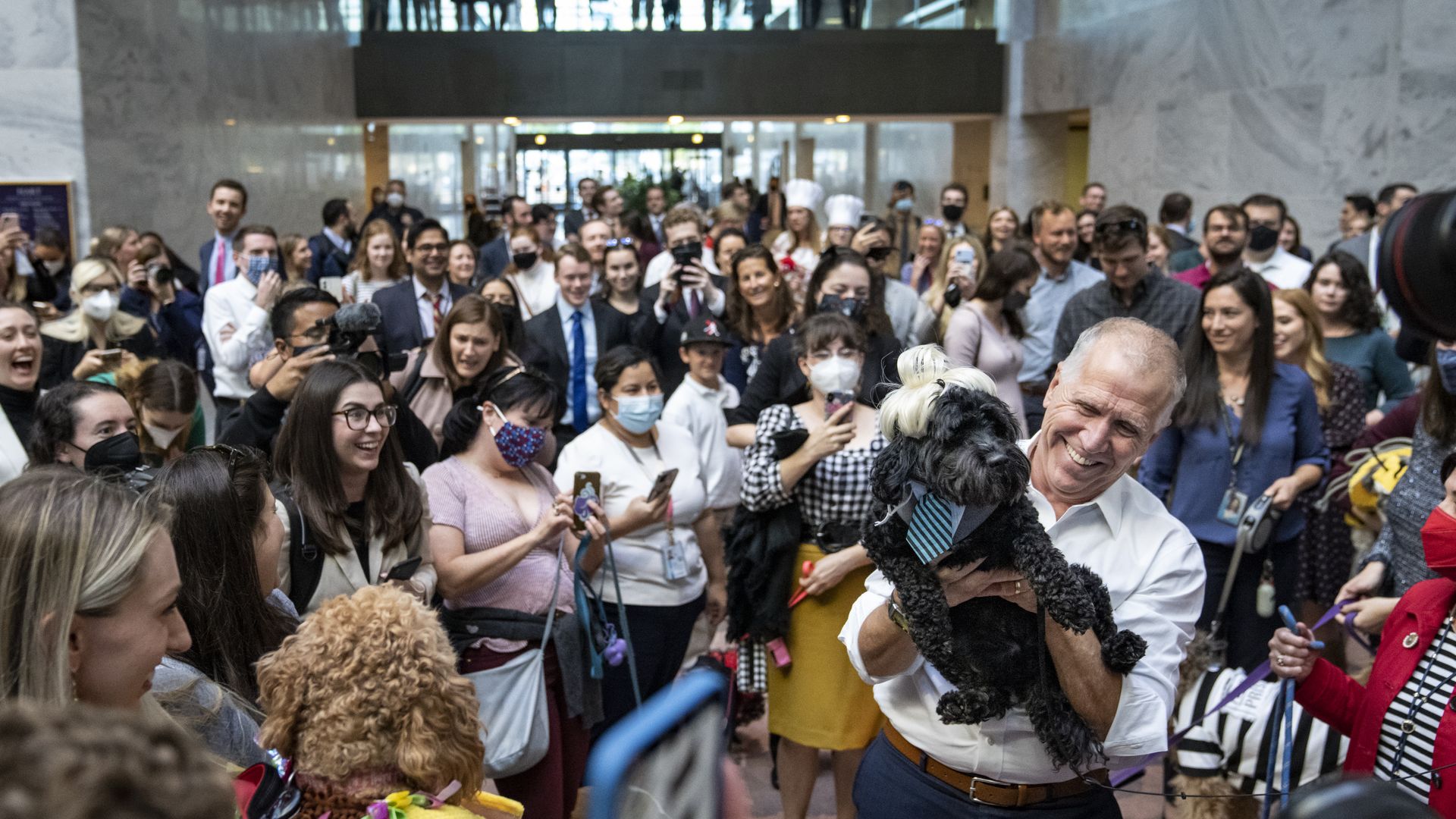| | | | | | | Presented By Toyota | | | | Axios Sneak Peek | | By the Axios Politics team ·Oct 27, 2021 | | Welcome back to Sneak. House Democrats have been summoned to a meeting in the Capitol at 9am ET tomorrow, Axios' Sarah Mucha reports. 📅 Join Axios' Hope King and Dan Primack tomorrow at 12:30pm ET for a virtual event about the future of personal finance in America. Guests include Sen. Gary Peters (D-MI) and Financial Literacy for All co-founder John Hope Bryant. Register. Smart Brevity™ count: 1,757 words ... 6.5 minutes. Edited by Glen Johnson. | | | | | | 1 big thing: Plan B for soaking the rich |  | | | Illustration: Sarah Grillo/Axios | | | | Millionaires be warned: Democrats are looking for creative ways to tax the wealthiest Americans to pay for their $1.75 trillion social safety net expansion, lawmakers and aides tell Axios' Hans Nichols. Why it matters: The nation's 700 billionaires may have dodged a bullet when Sen. Joe Manchin (D-W.Va.) effectively killed a plan to tax just their unrealized capital gains. But Manchin has told colleagues he's open to hitting all the country's richest families and individuals with higher taxes. - One idea is a new 15% minimum tax — to make up the approximately $200 to $250 billion Democrats were counting on from the billionaire tax that had been pushed by Sen. Ron Wyden (D-Ore.).
Driving the news: Even as he filleted Wyden's billionaire tax, Manchin floated a separate "patriotic tax." - He suggested it should prevent wealthy Americans from declaring "zero tax liability."
- For Americans who've had "a very, very good life and have had a lot of opportunities — there should be a 15% patriotic tax," Manchin told reporters.
What we're watching: Manchin huddled with Sen. Elizabeth Warren (D-Mass.) Wednesday afternoon to discuss ways to find additional revenue to cover a package that would accompany the $1.2 bipartisan infrastructure bill that's passed the Senate but's hung up in the House. - "Senator Manchin believes that very wealthy people should pay taxes because it is their patriotic duty," Warren told Axios.
- That doesn't include her own proposed "wealth tax," which would impose a 2% fee on wealth over $50 million, and 3% for more than $1 billion.
- "That's not where we are," she said of her talks with Manchin. "Even so, there are ways to make certain that billionaires do not escape taxes."
Go deeper: Democrats are engaged in a complicated negotiation among various factions in their own party about what to include in their social spending and climate plan — and how to fund it. - A proposal to provide paid family leave was jettisoned this afternoon in an effort to cut the price of the overall bill, but supporters insist it can survive.
- House Speaker Nancy Pelosi is moving toward a vote on the separate $1.2 trillion infrastructure package later this week and has effectively delinked the infrastructure and social spending bills.
Keep reading. |     | | | | | | 2. The progressive promise |  | | | Rep. Mark Pocan, who says, "I trust the president." Photo: Bill Clark/CQ Roll Call | | | | There's still a path to a final deal on both spending packages after House progressives said they were willing to stop holding the bipartisan infrastructure bill hostage based on a presidential promise, Axios' Sarah Mucha and Andrew Solender report. Why it matters: A key sticking point for progressives supporting the $1.2 trillion BIF was their requirement the Senate first pass the nearly $2 trillion social safety net expansion they favor. Now, they say senators only have to promise they'll do so before they support the bipartisan bill. - A lingering condition: the House has to hold its votes on both bills the same day.
Driving the news: Rep. Mark Pocan (D-Wis.) told Axios 30 members of the Progressive Caucus executive board were reassured by President Biden's pledge that all 50 Democratic senators will pass the social spending bill. - "I trust the president. He was emphatic when we met with him that he's not going to do anything to jeopardize, you know, his word, because then we won't be able to get anything else done," Pocan said.
- Rep. Pramila Jayapal (D-Wash.), the caucus chair, said she has "dozens" of members on board with the agreement.
- "We have backed off the position that we need to have a Senate vote based on my conversations with the president," Jayapal told reporters today. "I would take his assurances that all 50 senators are on board and aren't going to undermine the deal."
- She also said it doesn't matter whether the social spending package is voted on before or after the infrastructure bill — as long as the House votes on both on the same day.
Driving the news: Support from the vast majority of House progressives is needed without dozens of Republican votes in that chamber. - House Republican leaders are urging their members not to give them.
- Some moderates inclined to do so feel burned progressives blocked a vote on the infrastructure bill until they got their assurances on the social spending package.
What they're saying: Rep. Jamaal Bowman (D-N.Y.) echoed the sentiment. - "There is some mistrust when it comes to the Senate," he said. If Biden gives his word, "then I'll trust the president."
- House Majority Leader Steny Hoyer (D-Md.) acknowledged the progressive demand.
- "I think it's going to be necessary for the president to look them in the eye and say, 'I believe, having talked to [Sen. Joe] Manchin, having talked to [Sen. Kyrsten] Sinema, that if this framework is passed, they will pass it in the Senate," Hoyer told CNN's Manu Raju.
Keep reading. |     | | | | | | 3. GOP burned by BIF |  | | | Rep. Blake Moore, who complains, "I think there's been irreparable damage done." Photo: Bill Clark/CQ-Roll Call, Inc via Getty Images | | | | As Democrats haggle over the final details of the social spending package, Republicans are venting frustration — with key moderates still wavering over whether to back the companion infrastructure bill, reports Axios' Andrew Solender. Why it matters: If progressives don't actually drop their demand to have the social bill passed before they agree to a vote on the infrastructure bill, the $1.2 trillion roads and bridges package remains in limbo without Republicans backfilling support for it. - Sen. Bill Cassidy (R-La.), an architect of the bipartisan bill and a member of the Senate "Group of 10" that engineered it, suggested the delays could hamper future bipartisan initiatives in both chambers.
- "At some point, giving your word has to matter," Cassidy told Axios. "If [House] Speaker [Nancy] Pelosi says, 'We're going to have a vote,' and she doesn't do it ... at some point, you think, 'Why ever work with them again?' Making a statement around here has to count for something."
Driving the news: Just a handful of House Republicans have said they plan to vote for the bipartisan bill, which their party's leadership has tried to rally opposition to on the basis it's "inextricably linked" with the social spending package. - Reps. Don Young (R-Alaska), Don Bacon (R-Neb.) and Brian Fitzpatrick (R-Pa.) told Axios they plan to vote for the bill — though the latter two both decried the delays.
- Rep. John Katko (R-N.Y.), chair of the moderate Governance Group and a one-time supporter of the bill, said Wednesday he'll "have to see how it goes" when asked if he still plans to vote for it.
- Rep. Blake Moore (R-Utah) said it's highly unlikely he'll vote for the bill, telling Axios, "I think there's been irreparable damage done in these negotiations. Republicans haven't been brought into the table at all, and they don't care to have any of our support, so they're not giving us any input."
- Moore complained there's been "no outreach" to Katko, despite him being "very sincere about improving this bill."
- Rep. Ron Kind (D-Wis.), a moderate who's been trying to get his Republican colleagues to back the bill, said Wednesday his efforts are going "not very well."
What they're saying: "Nobody is saying that this is not worthwhile legislation that deserves to be signed into law. They're just using it as a hostage," said Sen. Lisa Murkowski (R-Alaska), another member of the G10 group that engineered the bipartisan bill. - "That's not the way we should operate."
Keep reading. |     | | | | | | A message from Toyota | | How the new EV tax proposal would hurt hardworking Americans | | |  | | | | The new electric vehicle (EV) tax proposal discriminates against half of America's autoworkers by targeting those who have chosen not to join a union. The solution: Congress should apply EV tax incentives equally to all electric vehicles built by American autoworkers. Learn more. | | | | | | 4. By the numbers: Catholics, Biden and abortion |  Reproduced from Pew Research Center; Chart: Axios Visuals Biden — the second Catholic U.S. president — will meet with Pope Francis at the Vatican on Friday, as some church leaders debate whether to deny Holy Communion to politicians who support abortion rights. By the numbers: Overall, two in three U.S. Catholics believe the president should be allowed to take Communion despite his stance on abortion, according to polling by Pew Research Center that was reviewed by Axios' Stef Kight. - There are partisan differences, however. More than half of Republican Catholics think the president should be refused the eucharist.
The big picture: Abortion has long been a deeply partisan, hotly contested issue. - Lately, it's caught national attention Texas passed a bill banning abortions as soon as a fetal heartbeat can be detected — about six weeks into a pregnancy.
- Critics say some women aren't even aware at that point that they're pregnant.
- The Supreme Court has agreed to hear three abortion-related cases this term— two over the Texas law and another over a Mississippi law banning abortions after 15 weeks.
What they're saying: Biden is "somebody who stands up for and believes that a woman's right to choose is important. The pope has spoken differently," White House press secretary Jen Psaki told reporters today. |     | | | | | | 5. Afghan resistance ups its U.S. lobbying |  | | | Photo illustration: Sarah Grillo/Axios. Photo: Wakil Kohsar/AFP via Getty Images | | | | The Afghan resistance is boosting its D.C. lobbying operation, records reviewed by Axios' Lachlan Markay show. Why it matters: U.S. financial and military aid could be crucial to efforts to oppose Taliban rule in Afghanistan. But opposition forces must convince the Biden administration to stay engaged to some degree in a conflict from which the president is determined to extricate the United States. What's new: A leading opposition group, the National Resistance Front of Afghanistan, has registered to lobby U.S. policymakers, signaling it recognizes the need to win over key officials in Washington. - A newly formed U.S. nonprofit arm, incorporated in D.C. last week, filed paperwork under the Foreign Agents Registration Act on Tuesday.
- It told the Justice Department it anticipates "lobbying the government, international organizations and other political entities."
- The registration comes about six weeks after the National Resistance Front enlisted the Sonoran Policy Group to "provide strategic advisory services."
- Ali Nazary, the Massoud deputy leading its U.S. advocacy effort, did not respond to questions from Axios about the aid or commitments it hopes to secure.
The big picture: The National Resistance Front is run by Ahmad Massoud, who's tried to marshal military resistance to the Taliban since the U.S. withdrawal in August. - Its FARA registration this week says the National Resistance Front seeks to be "the protector of America's 20-year investment in Afghanistan and the force to rid the country of intolerance and terrorism."
- Sen. Lindsey Graham (R-S.C.) and Rep. Mike Waltz (R-Fla.) have called on Biden to recognize Massoud, as well as fellow National Resistance Front co-founder Amrullah Saleh, as "the legitimate government representatives of Afghanistan."
- The Biden administration has shown no signs it will do so.
Be smart: The Taliban captured the Afghan province of Panjshir last month, dealing a critical blow to Massoud-led efforts in that resistance stronghold — and making U.S. aid critical to any remaining military resistance. |     | | | | | | 6. Pic du jour |  | | | Photo: Drew Angerer/Getty Images | | | | Sen. Thom Tillis (R-N.C.) holds his dog, Mitch, dressed as Senate Majority Leader Mitch McConnell. - The occasion was Tillis' annual Halloween dog parade in the Hart Senate Office Building.
|     | | | | | | A message from Toyota | | New EV tax proposal hurts half of America's autoworkers | | |  | | | | The new EV tax proposal targets autoworkers in the U.S. who have chosen not to join a union. What this means: The tax incentive would unfairly discriminate against half of America's autoworkers and would be unhelpful in combating climate change and growing the auto industry in the U.S. Learn more. | | | | 🐫 We made it through Hump Day amid a bumpy week! Thanks for reading. A reminder that your family, friends and colleagues can subscribe to Sneak or any of Axios' other free local and national newsletters through this link. |  | | It'll help you deliver employee communications more effectively. | | | | | | Axios thanks our partners for supporting our newsletters. If you're interested in advertising, learn more here.
Sponsorship has no influence on editorial content. Axios, 3100 Clarendon Blvd, Suite 1300, Arlington VA 22201 | | | You received this email because you signed up for newsletters from Axios.
Change your preferences or unsubscribe here. | | | Was this email forwarded to you?
Sign up now to get Axios in your inbox. | | | | Follow Axios on social media:    | | | | | |










No comments:
Post a Comment